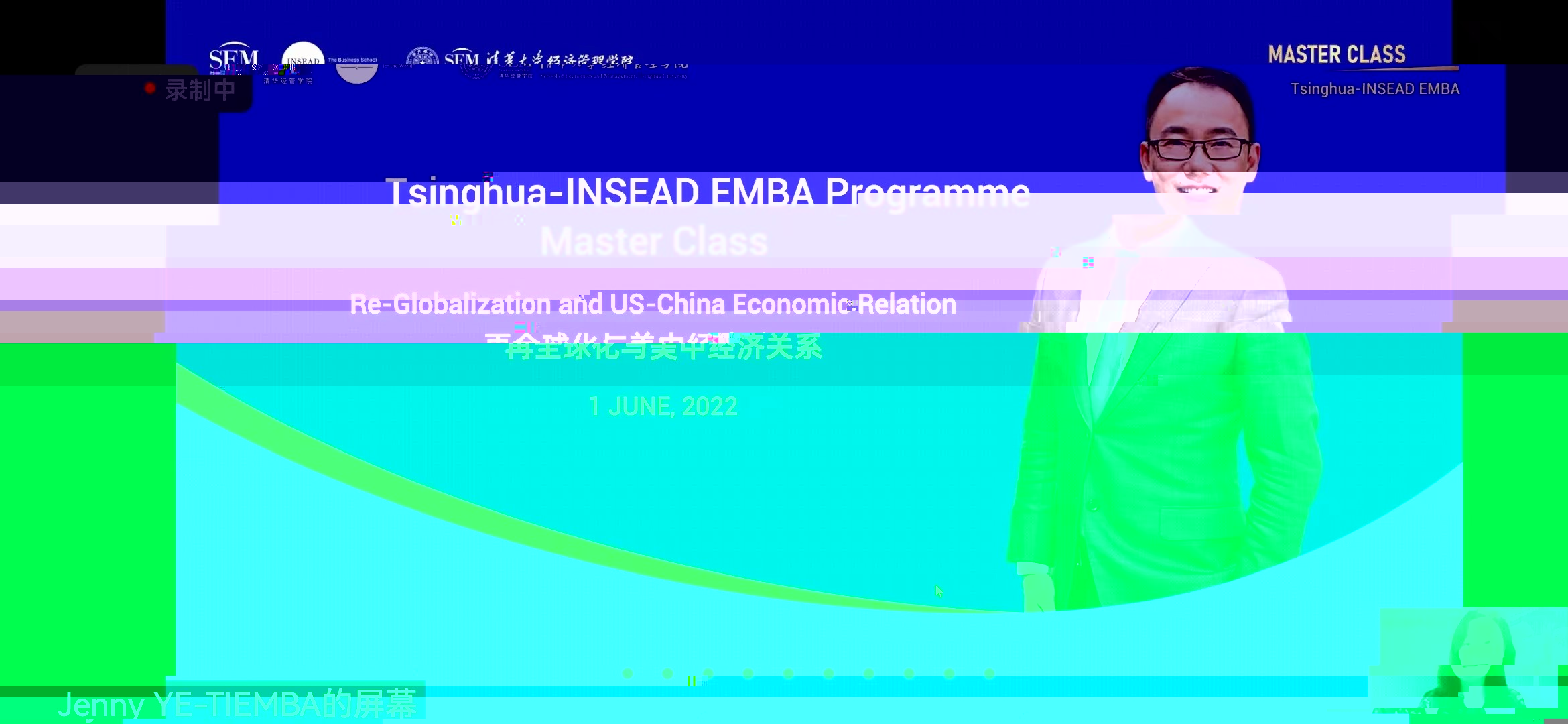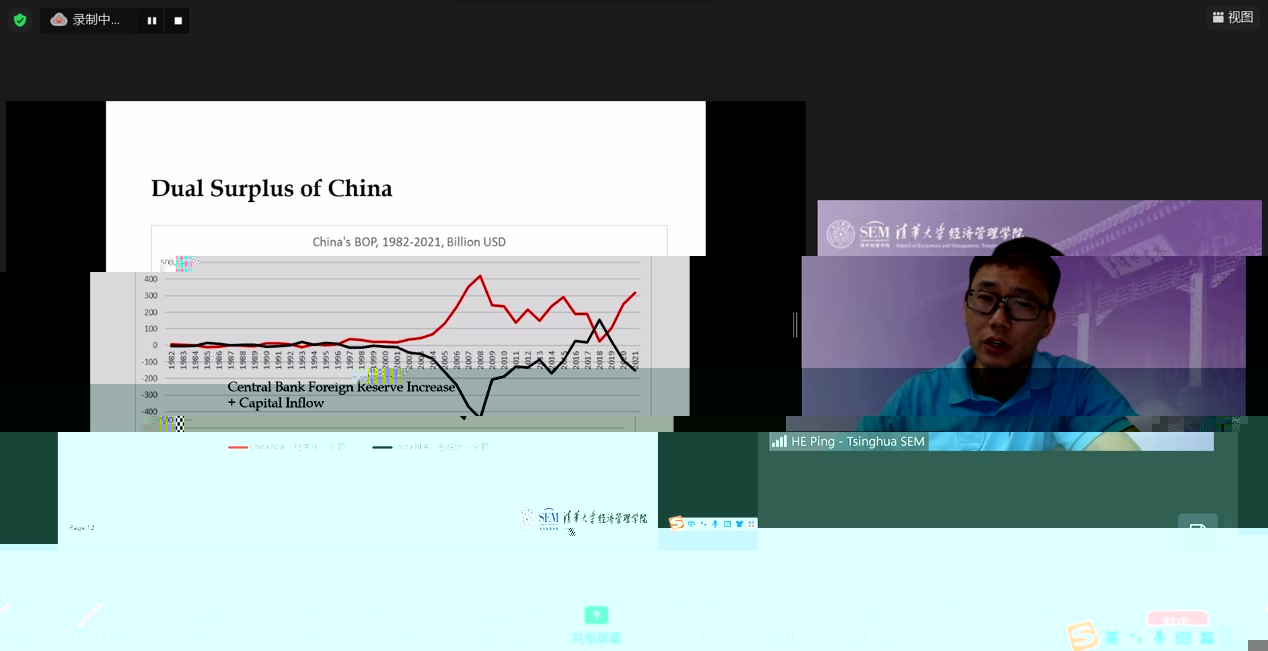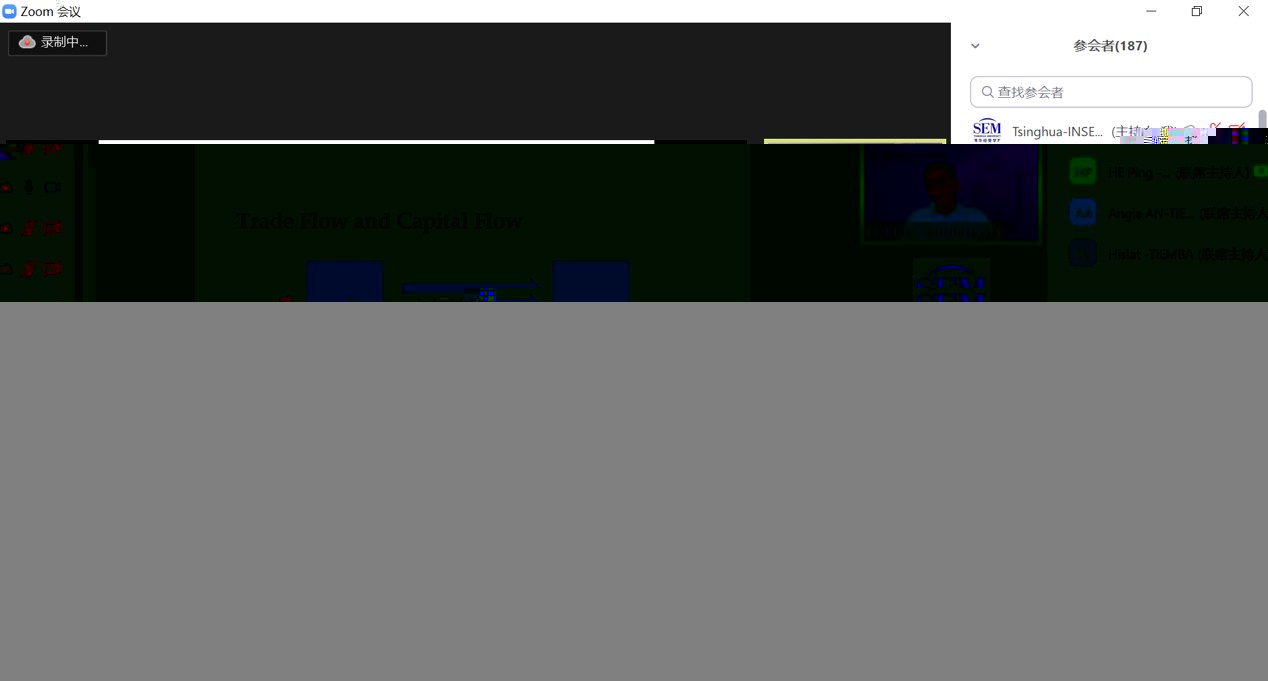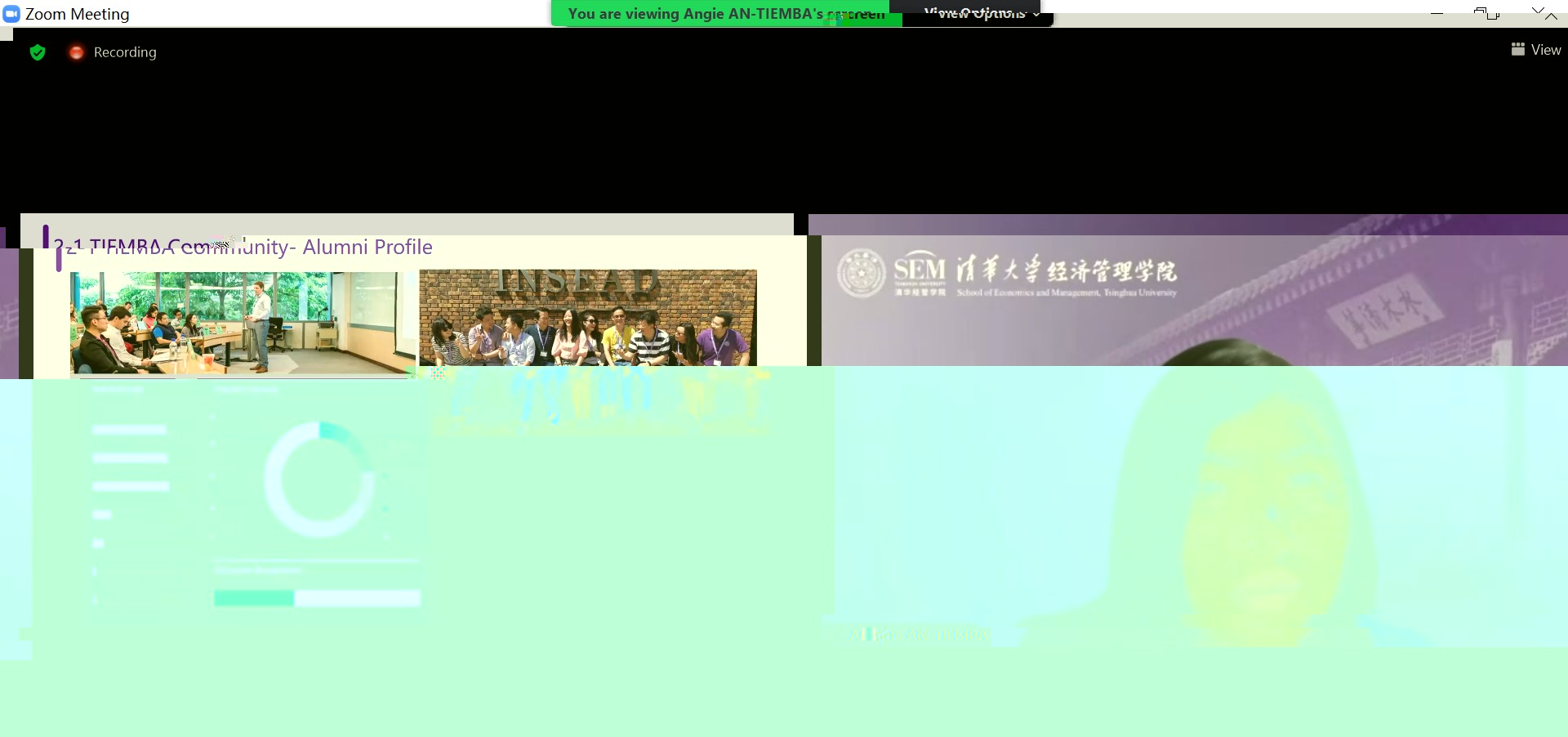Tsinghua-INSEAD Executive MBA (TIEMBA) held a master class for as many as 200 online participants from around the world on June 1, 2022.

The online master class hosted by Tsinghua-INSEAD EMBA program
The class consisted of two parts: a lecture on Re-Globalization and US-China Economic Relation by Professor HE Ping, associate dean of Tsinghua University School of Economics and Management (Tsinghua SEM), and a program introduction by Angie AN, director of the TIEMBA program.
In the lecture, HE spoke about globalization, re-globalization, and Sino-US economic relations from a historical and economic perspective.
HE also reviewed the three waves of global industry transfer that occurred in the 1950s, 1960s-1970s, and 1980s. The global manufacturing industry first flew from the US and Europe to Japan, and then to the four dragons of Asia, before flowing into China's coastal areas. In recent years, industry has moved further inland in China, as well as into Vietnam, Cambodia, and other neighboring countries.

Professor HE Ping gave a lecture.
While some countries have benefitted from globalization, it has created new problems. The subprime crisis and Euro crisis, for example, are two direct outcomes of globalization. HE said the existing model of "East Asian production, American consumption" is not sustainable because the US and European markets are not sufficient to sustain global economic growth. China needs a new growth mode, and other developing countries need opportunities as well.
"De-Globalization" is an emerging topic. Population flow from poor countries to rich countries is happening due to an excessive global income gap, wars, and refugee problems, and this movement has inspired discussions about closing borders. Moreover, the rise of China has put pressure on Western countries, which have responded with trade protectionism and nationalism. Populists in the US believe America and other developed countries in the West should maintain their leading position in global governance, cultural superiority, and technological leadership, which is unfair.
Re-globalization is needed to bring more fairness, ensure more opportunities for developing countries, and create a more robust supply chain. Professor HE introduced his forecasts for China's growth, in which he covered changes in both the internal environment and external environment, as well as a change to China's growth mode.

Professor HE Ping gave a lecture.
Lastly, Professor HE talked about the implications for Sino-US relations, outlining the formation of a global economic system with a US-centered economic and trade network and a China-centered economic and trade network, which would be both competing and cooperating.
At the end of the lecture, HE took questions from attendees, answering questions about the Belt and Road Initiative and its impact on the US and EU countries.

Angie AN introduced the program.
After the lecture, AN, director of the TIEMBA program, gave a detailed presentation about its unique partnership between Tsinghua SEM and INSEAD, one of the most prestigious EMBA programs in the world. She said the recruitment for TIEMBA 2023 is underway.
Editor: REN Zhongxi
 Latest News
Latest News